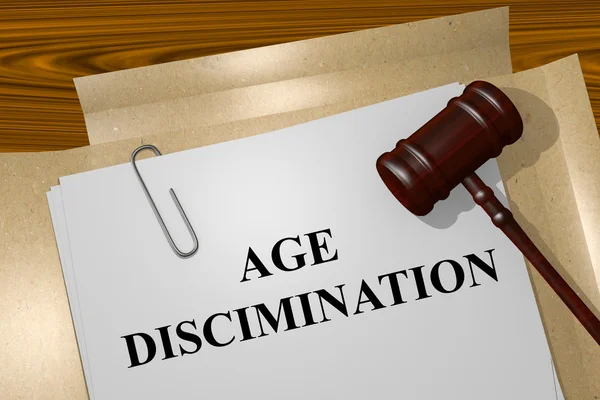- Asking the right questions during a legal consultation helps reveal trust, values, and communication style.
- Choosing a local legal professional provides familiarity with the court system and access to relevant networks.
- Red flags, such as rushed communication or vague answers, should not be ignored when making your decision.
- A thoughtful post-consultation reflection helps you find a lawyer who aligns with your needs and personality.
Hiring a lawyer isn’t something most people do casually. It usually means something big is going on — maybe you’re buying a home, dealing with a family dispute, or facing a situation you never expected. Whatever it is, it’s personal, it’s stressful, and the stakes feel high.
So, how do you make sure the person you choose to represent you has your back? Because let’s be honest — between the legal jargon, hourly rates, and firm bios that all seem to say the same thing, it’s hard to know what matters.
That’s why asking the right questions is your best tool. Not just the standard “how many cases have you done?” but the ones that tell you if this is someone you can trust — someone who gets your situation and won’t ghost you when things get complicated.
This guide breaks down what’s at stake, why local knowledge counts, and which questions will cut through the fluff and help you hire the right lawyer for your needs.
Contents
What’s at Stake When You Choose the Wrong Legal Support
Think about this: hiring a lawyer is one of the few professional relationships where the wrong choice can cost you more than just money. The impact can stretch into your mental health, your relationships, your career — even your freedom, in some cases.
When people end up with a lawyer who doesn’t listen, rushes through the process, or overpromises and underdelivers, the fallout can be brutal. Deadlines are missed, court appearances are a mess, and communication breaks down fast. It’s not just frustrating—it’s damaging.
And unfortunately, this happens more often than you’d think. Many people hire someone based on the first search result they see or follow a recommendation from a friend without conducting further research. Then, when things go sideways, they’re left wondering if it’s too late to switch.
The truth is, getting legal help isn’t just about checking a box. It’s about protecting what matters to you, and that means taking the time to ask hard questions before you sign anything. You’re not being difficult — you’re being smart.
The Power of Local Insight When Choosing a Legal Professional
Here’s something that often gets overlooked: local knowledge can be a serious advantage in legal matters. Every region has its rhythm — local courts, judges, even procedural quirks that an out-of-town lawyer might not be familiar with. When your lawyer knows the lay of the land, that familiarity can work in your favor in ways you don’t see at first.
It’s not just about convenience. Local lawyers often have established relationships with other professionals in the area, such as mediators, clerks, and other attorneys, which can sometimes make processes smoother or faster. They know how things work, beyond what the law books say.
That’s why many people feel more supported when they connect with someone who understands the unique dynamics of their community. If you’re based in regional Victoria, for example, having experience with lawyers in Geelong can give you access to people who already operate in your area’s legal scene. It adds a layer of context and connection that’s hard to replicate.
When you’re under pressure, that kind of local grounding can be the difference between feeling like just another case number and feeling truly seen and represented.
7 Questions That Reveal the Right Lawyer for You
So, you’ve scheduled a consultation — now what? This is where most people tend to freeze up or stick to surface-level topics. But this is your chance to dig deeper and find out if the lawyer in front of you is a good fit.
Forget memorizing legal terms or trying to impress them. Instead, come prepared with a few meaningful questions that address how they operate and what working with them will be like.
Try asking things like:
- “How will we communicate, and how quickly do you usually respond?”
- “Can you explain your typical process for cases like mine?”
- “What challenges do you see in my situation?”
And then there are the ones that go a bit deeper:
- “Have you ever turned down a case like this? Why?”
- “What would success look like from your perspective?”
- “How do you charge for your services, and are there any costs I should expect beyond your fees?”
- “Who else on your team will be involved in my case?”
It’s not just about their answers — it’s also about how they respond. Do they speak in clear, honest terms or throw jargon at you? Are they open and respectful, or defensive and rushed?
You’re not just hiring someone for their legal expertise. You’re hiring someone with whom you may need to share personal and uncomfortable details. If the vibe’s off, pay attention. Trust your instincts. The best lawyers don’t make you feel small — they make you feel supported.
What to Do After the Conversation Ends
Once you’ve had the conversation, don’t rush into anything. Take a beat. Reflect on how you felt during the meeting. Did they listen more than they talked? Did they answer your questions directly, or skirt around them?
You can even jot down some notes right after, while the meeting’s still fresh in your mind. It might feel overkill, but when you’re talking to a few different lawyers, those details matter — especially when they all start to blend.
Think about whether their approach aligns with your needs. For example, if you value frequent updates, but they only check in once a month, that’s probably not going to work—no matter how good they are in court.
Consider requesting a simple engagement letter or a summary of their work on your case. It’s a good sign if they’re transparent about their process and happy to provide it.
Finally, trust your gut. Legal decisions are serious, but that doesn’t mean you can’t bring some intuition into the process. If you felt rushed, dismissed, or unsure, don’t ignore that. You deserve to feel confident and clear about who’s representing you.
Conclusion
Choosing the right lawyer isn’t just about credentials or a polished website — it’s about trust, communication, and confidence in the relationship. The questions you ask early on can reveal far more than a resume ever could, and they can save you from stress, confusion, and potentially costly missteps down the line.
Remember, you’re not just hiring someone to handle paperwork. You’re inviting someone into a deeply personal part of your life — whether it’s a legal battle, a business deal, or something more emotional. That deserves care and clarity.
So take your time, ask the tough questions, and pay attention to how you feel during the process. The right legal support can make all the difference, not just in the outcome but also in how you approach the challenge ahead.




